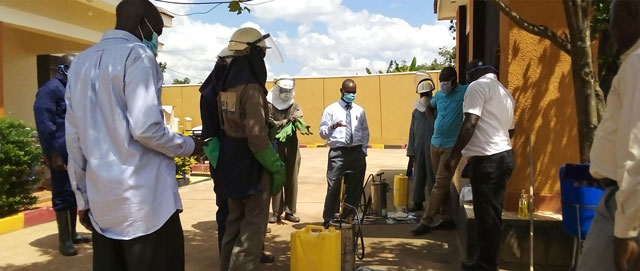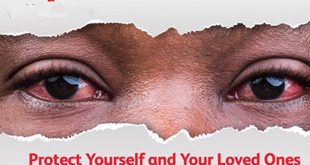
Lira, Uganda | THE INDEPENDENT | Lira district has registered a 15 per cent reduction in Malaria prevalence, thanks to the Indoor- Residual Spray (IRS) program. IRS is the application of long-lasting insecticides in residences to either kill or repel the mosquitoes.
It is believed to be suitable for Uganda because mosquitoes that spread malaria parasites feed and rest indoors. The government introduced IRS in Lira district in 2014 following an upsurge in malaria prevalence in the district. In 2012, malaria prevalence stood at 38% in the district. It reduced to 13.6% in the 2016/2017 financial year and 8.4% in the 2017/2018 financial year.
However, it again shot up to 13.8% in the 2018/2019 financial year when the program was put on hold. Geoffrey Ariko, the Lira District Bio-stat Officer, explains that malaria cases kept increasing throughout the year up to 33.7%. He, however, says that they recorded a sharp decline in Malaria cases between December 2020 and March 2021 following the implementation of IRS program in May 2020.
Although the IRS program met resistance from organic farmer groups who believed that the chemicals used in the program is not safe for the environment and religious groups that urged their followers to shun the program, many people embraced the program. James Odur, a resident of Lira City who believes that expectant mothers and children are the most affected by malaria, urged other community members to embrace the program.
The IRS program is scheduled to end in May 2022, meaning the district has to find new ways of fighting malaria thus the introduction of larviciding, the regular application of microbial or insecticides in water bodies or water containers with the aim of reducing the adult population of mosquitoes.
Rashid Mwesigye Etwop, the District entomologist explained that the new intervention is already being implemented in the district and registering success.
According to him, the fight against malaria is a collective responsibility, which requires everyone to play a role. “Fighting malaria is not only swallowing medicine or sleeping under the nets. Nets have always been there but the cases of malaria were still high 37.7% from 16% yet people were sleeping under the nets!” He called on the community of Lira to embrace new interventions in order to have a healthy life.
The last IRS exercise conducted in May 2020, covered 164,396 of the 179,041 structures in Lira district. This accounts for 91.8% coverage of the entire district. The district is scheduled to conduct another IRS exercise on April 26th 2021.
*******
URN
 The Independent Uganda: You get the Truth we Pay the Price
The Independent Uganda: You get the Truth we Pay the Price


